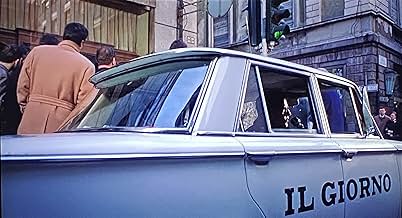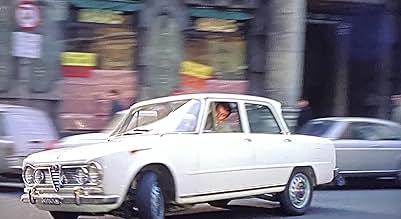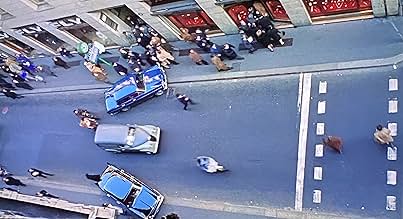Although the poliziotteschi sub-genre would not dominate the Italian box-office until the 1970's - a period which also saw crime movies in American cinema become distinctly grittier - it's roots can be traced back to the early work of director Carlo Lizzani. His early work, such as Wake Up and Kill (also known as Wake Up and Die) and The Violent Four (1968), laid the foundations for a rougher crime flick, movies that weren't afraid be socially aware or show Italy as the haven for crime and corruption it had become. For Wake Up and Kill, Lizzani took inspiration from one of the country's most popular Robin Hood figures - Luciano Lutring.
To be honest, I hadn't heard of Lutring before I was reading up about the film before watching it. I also doubt many people outside of Italy, or perhaps France (where Lutring served 12 years in prison), would have heard of him either, but his story is a familiar one. The likes of Ned Kelly and Jesse James come immediately to mind - criminals who are pardoned of their acts through folk-tales, becoming mythic heroes in the process. Lutring (played with a charismatic swagger by Robert Hoffman) robs jewels in broad daylight by smashing shop windows with a hammer and grabbing what he can. As his fame rises and his reputation hardens, he turns increasingly violent, carrying a sub-machine gun in a violin case which lends him the name "the machine-gun soloist,".
At first, Lizzani draws us into a sexy world of crime where every robbery lacks sophistication but sets the pulse racing, with sexy club singer Yvonne (Lisa Gastoni) soon on Lutring's arm before she realises what she's gotten herself into. Led by the determined Inspector Moroni (Gian Maria Volonte), the police are always one step behind Lutring's crime-spree. A few moments of casual domestic violence aside, Lizzani mainly portrays Lutring in a sympathetic light, being sexed-up by the media and blamed for crimes he didn't commit. For the crimes he does commit, Lizzani delivers a couple of well-handled and realistic set-pieces, usually in broad daylight. But at just shy of two hours (there are various versions of the movie out there - it appears I saw the longest) Wake Up and Kill feels dragged out, despite closing with a fantastic open-ended final scene.

























